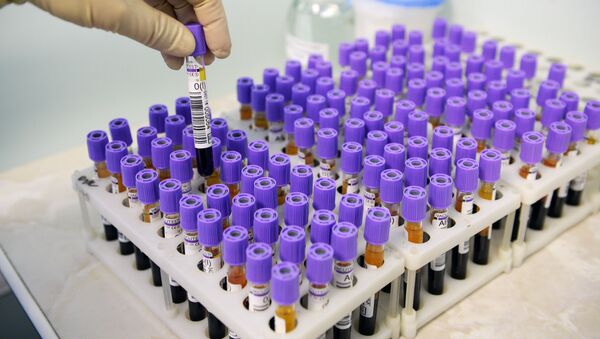In the study, medical researchers analyzed the blood groups of more than 2,000 patients infected with the coronavirus in the cities of Wuhan and Shenzhen. They found that type-A patients had higher rates of infection and usually exhibited more severe symptoms.
While the study’s results are still preliminary, and additional analysis needs to be completed to determine if there is a scientific link between infection and blood type, the researchers have called on governments and medical facilities to take blood type differences into account when treating patients and planning how to stem the spread of the virus.
“People of blood group A might need particularly strengthened personal protection to reduce the chance of infection,” the researchers, led by Wang Xinghuan at the Center for Evidence-Based and Translational Medicine at Zhongnan Hospital of Wuhan University, wrote, the South China Morning Post reported.
“Sars-CoV-2 [COVID-19]-infected patients with blood group A might need to receive more vigilant surveillance and aggressive treatment,” Wang wrote.
The researchers also found those with type-O blood had a “significantly lower risk for the infectious disease compared with non-O blood groups.”
“It might be helpful to introduce ABO blood typing in both patients and medical personnel as a routine part of the management of Sars-CoV-2 and other coronavirus infections, to help define the management options and assess risk exposure levels of people,” Wang added.
According to Gao Yingdai, a researcher with the State Key Laboratory of Experimental Haematology in Tianjin who was not involved in the study, the study could be improved by examining a much larger sample of patients. In addition, Gao noted that the study did not include information on molecular interactions between COVID-19 and various types of red blood cells, which could explain how blood type affects the likelihood and severity of infection. Blood types are determined by antigens on the surface of red blood cells. Antigens are substances that induce an immune response in the body.
Gao also warned that although the new study may be “helpful to medical professionals,” citizens “should not take the statistics too seriously.”
“If you are type A, there is no need to panic. It does not mean you will be infected 100%. If you are type O, it does not mean you are absolutely safe, either. You still need to wash your hands and follow the guidelines issued by authorities,” Gao noted.

